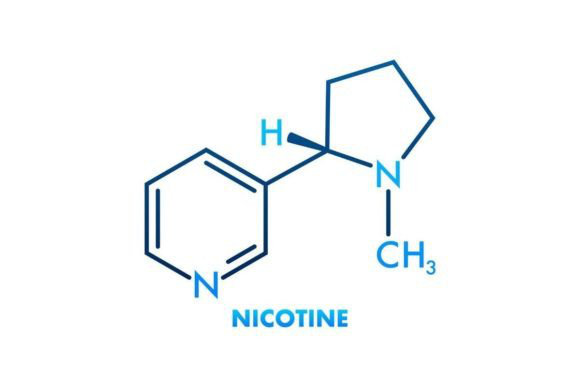Is Modafinil an Effective Treatment for Fibromyalgia Symptoms?
Fibromyalgia (FM) is a chronic condition marked by widespread pain, persistent fatigue, sleep disruptions, and cognitive issues often called “fibro fog.” These symptoms can make daily activities feel daunting and exhausting. While treatments often target pain and sleep, managing the debilitating fatigue remains a significant challenge. Modafinil, a medication commonly used for sleep disorders like narcolepsy, has sparked interest for its potential to reduce fatigue in fibromyalgia patients. Exploring its effectiveness reveals whether Modafinil could help improve energy levels and overall functionality for those living with FM.
Understanding Fibromyalgia Symptoms
Key Symptoms of Fibromyalgia
Fibromyalgia is most commonly associated with widespread pain that affects muscles and soft tissues throughout the body. However, the condition also includes other debilitating symptoms, such as profound fatigue, sleep disturbances, and cognitive issues. Many patients experience unrefreshing sleep, waking up just as exhausted as when they went to bed. Cognitive issues, or “fibro fog,” manifest as difficulty concentrating, memory problems, and a lack of mental clarity, making it hard to stay focused on tasks.
In addition to these core symptoms, fibromyalgia patients may suffer from headaches, bladder issues, and mood disturbances like anxiety and depression. These symptoms often interact, making the overall experience of the condition complex and difficult to treat with a single approach.
Current Treatment Approaches
Managing fibromyalgia typically requires a multi-faceted approach that combines medications, lifestyle modifications, and therapeutic interventions. Pain relievers, antidepressants, and antiseizure medications are commonly prescribed to manage pain and improve sleep quality. However, these treatments often do little to address the persistent fatigue that many patients experience. As a result, treating fatigue remains a significant challenge for healthcare providers and patients alike.
Fatigue is often one of the most debilitating symptoms, preventing patients from maintaining normal daily routines. Traditional treatments for fibromyalgia often focus on managing pain and improving sleep but fail to provide adequate relief from the overwhelming exhaustion that plagues many patients.
The Role of Modafinil in Treating Fibromyalgia
Mechanism of Action
Modafinil is a wakefulness-promoting agent typically prescribed for sleep disorders such as narcolepsy and obstructive sleep apnea. It works by increasing dopamine levels in the brain, enhancing wakefulness and improving alertness. Unlike traditional stimulants like amphetamines, Modafinil has a lower risk of dependence and fewer side effects, such as jitteriness or anxiety. This makes it an appealing option for patients who need a medication that promotes wakefulness without causing overstimulation.
Because fibromyalgia patients often suffer from extreme fatigue and cognitive difficulties, Modafinil’s ability to boost alertness and reduce fatigue has drawn the attention of researchers and healthcare providers. Its mechanism of action offers potential relief for those struggling with the profound tiredness that accompanies fibromyalgia.
Why Modafinil May Be Effective for Fibromyalgia
Modafinil’s success in treating fatigue-related conditions such as multiple sclerosis (MS) and chronic fatigue syndrome (CFS) has led researchers to investigate its potential for fibromyalgia. Both MS and CFS share common symptoms with fibromyalgia, particularly in the areas of fatigue and cognitive dysfunction. Given these similarities, Modafinil has been explored as a possible treatment to help FM patients regain energy and improve mental clarity.
Initial studies suggest that Modafinil may help alleviate fatigue and improve functional capacity in fibromyalgia patients, making it easier for them to stay active and alert throughout the day. Its ability to reduce fatigue without the significant side effects of other stimulants makes it a promising option for fibromyalgia patients who have not found relief from traditional treatments.
Key Research and Case Studies on Modafinil for Fibromyalgia
Schaller and Behar Study (Journal of Neuropsychiatry and Clinical Neurosciences)
One of the most notable studies investigating Modafinil’s potential in fibromyalgia treatment was conducted by James L. Schaller, M.D., and David Behar, M.D., and published in The Journal of Neuropsychiatry and Clinical Neurosciences. In this open-label study, four fibromyalgia patients who had not experienced significant relief from standard treatments were given Modafinil. The results were promising, with all four patients reporting significant improvements in fatigue and daily functionality.
Patients in the study noted that Modafinil allowed them to stay awake longer, reduce the need for naps, and engage more fully in daily activities such as childcare and work. Notably, the patients’ Global Assessment of Functioning (GAF) scores increased from an average of 55 (moderate impairment) to 70 (minimal impairment). These improvements were also observed by family members and coworkers, who noticed an increase in the patients’ energy levels and alertness.
The mean dose of Modafinil used in the study was 250 mg per day, with individual doses ranging from 150 to 300 mg based on patient response.
Other Relevant Research
While direct research on Modafinil for fibromyalgia is still emerging, studies on similar conditions such as chronic fatigue syndrome (CFS) and attention-deficit hyperactivity disorder (ADHD) provide additional insight into Modafinil’s potential benefits for fibromyalgia patients. In CFS patients, Modafinil has been shown to improve both physical fatigue and cognitive function, while ADHD research has highlighted its effectiveness in improving attention and reducing cognitive impairments, which overlap with the cognitive difficulties experienced in fibromyalgia.
Furthermore, studies on cancer-related fatigue have shown that Modafinil and other stimulants like methylphenidate (Ritalin) can help manage extreme fatigue in patients undergoing cancer treatments. Although these studies do not directly address fibromyalgia, they highlight Modafinil’s potential to improve wakefulness in conditions marked by fatigue.
Benefits of Modafinil for Fibromyalgia Patients
Improved Fatigue and Alertness
One of the most significant benefits Modafinil offers for fibromyalgia patients is its ability to combat the persistent fatigue that defines the condition. Many fibromyalgia patients report struggling to maintain energy levels throughout the day, often feeling the need to nap frequently or rest after minimal physical activity. Modafinil helps by promoting wakefulness and reducing the overwhelming urge to sleep during the day.
Patients taking Modafinil have reported feeling more awake, alert, and capable of managing their daily tasks, including work and family responsibilities. This improvement in wakefulness allows patients to engage more fully in their lives, helping them break the cycle of fatigue and inactivity that often accompanies fibromyalgia.
Enhanced Cognitive Function
In addition to reducing fatigue, Modafinil has shown promise in alleviating cognitive issues related to fibromyalgia, often referred to as “fibro fog.” Many patients with fibromyalgia struggle with concentration, memory, and mental clarity, which can make it difficult to perform even simple tasks that require focus. Modafinil’s ability to enhance cognitive function can help fibromyalgia patients regain a sense of mental sharpness.
Patients who have taken Modafinil have reported improvements in their ability to concentrate, retain information, and stay mentally organized. This can be especially beneficial for those whose work or daily responsibilities require sustained attention and focus.
Sustained Improvement in Functional Capacity
By reducing fatigue and improving cognitive function, Modafinil can also enhance a patient’s overall functional capacity. Fibromyalgia often leaves patients feeling too tired or mentally foggy to engage in regular activities, such as working, exercising, or maintaining a household. Modafinil’s benefits allow patients to return to these activities with more consistency and less struggle.
Reports from patients and clinical studies alike show that those taking Modafinil can resume daily tasks with less fatigue, improving their overall quality of life. Whether it’s maintaining a job, taking care of family, or simply enjoying hobbies, Modafinil’s effects can help patients achieve a higher level of day-to-day functioning.
Potential Risks and Limitations
Side Effects of Modafinil
While Modafinil holds promise as a treatment for fibromyalgia symptoms, it is not without potential side effects. Common side effects include mild headaches, dizziness, and gastrointestinal issues, such as nausea. Some patients have also reported feeling slightly anxious or jittery during the initial weeks of treatment, though these side effects often subside as the body adjusts to the medication.
In one case reported in a study, a patient experienced heightened anxiety during the first week of treatment, which was resolved by reducing the dosage. Although these side effects are generally mild, they should be monitored, and any significant issues should be discussed with a healthcare provider.
Not a Cure, but a Symptom Management Tool
It’s important to recognise that Modafinil is not a cure for fibromyalgia. Rather, it should be viewed as a tool for managing specific symptoms, particularly fatigue and cognitive difficulties. Patients who find relief with Modafinil will still need to manage other aspects of fibromyalgia, such as pain and mood disturbances, through a combination of treatments like physical therapy, lifestyle changes, and other medications.
Modafinil can play an important role in symptom management, but it is most effective when used alongside other treatment approaches tailored to the individual’s needs.
Potential for Dependency and Misuse
As with any stimulant, there is a risk of dependency with Modafinil, though it is generally considered to have a lower risk compared to amphetamine-based drugs. Over time, some patients may feel the need to increase their dosage to maintain the drug’s effects, which could lead to dependency. For this reason, it’s important to use Modafinil under strict medical supervision, with regular check-ins to assess dosage and overall effectiveness.
Additionally, long-term use of Modafinil could potentially disrupt sleep patterns, which may counteract its benefits. Fibromyalgia patients already struggle with non-restorative sleep, and any disruption in sleep quality can exacerbate fatigue. Ensuring that Modafinil is carefully dosed and balanced with good sleep hygiene practices is crucial for maintaining its positive effects.
Future Directions and Clinical Implications
The Need for Larger Clinical Trials
While initial studies and case reports have suggested that Modafinil can be beneficial for fibromyalgia patients, larger and more comprehensive clinical trials are necessary to confirm its effectiveness and safety for this specific condition. Most of the research conducted so far has involved small sample sizes or anecdotal evidence, which, while promising, is not enough to draw firm conclusions about the drug’s long-term effects or optimal dosing for fibromyalgia.
Researchers are advocating for more robust, placebo-controlled trials that can offer a clearer picture of how Modafinil impacts fibromyalgia patients over an extended period. This will help determine whether Modafinil should be considered a standard part of fibromyalgia treatment plans in the future.
Potential for Combined Therapies
Given the multifaceted nature of fibromyalgia, combining Modafinil with other treatments may enhance its benefits. Fibromyalgia affects patients differently, and no single treatment is likely to address all symptoms. Modafinil could be paired with other therapies to create a more comprehensive treatment approach. For instance, combining Modafinil with cognitive behavioural therapy (CBT) or physical therapy could target both the mental and physical symptoms of fibromyalgia.
Some experts are also exploring the possibility of using Modafinil alongside nutritional supplements that address underlying issues like mitochondrial dysfunction, which may contribute to the fatigue experienced in fibromyalgia. This combination could further improve patients’ energy levels and functional capacity, making Modafinil an even more versatile tool in fibromyalgia treatment.
Conclusion
Summary of Modafinil’s Potential in Fibromyalgia Treatment
Modafinil offers a promising option for managing some of the most challenging symptoms of fibromyalgia, particularly fatigue and cognitive impairment. Initial research and case studies have demonstrated its ability to improve wakefulness, reduce fatigue, and enhance cognitive clarity in patients suffering from fibromyalgia. These improvements allow patients to engage more fully in daily activities, improving both functionality and overall quality of life. While Modafinil is not a cure for fibromyalgia, it provides a valuable tool for managing specific symptoms that are often difficult to address with traditional treatments.
However, it’s important to remember that Modafinil is most effective when used as part of a broader, individualized treatment plan. It works best when combined with other therapies, including physical therapy, pain management, and lifestyle modifications, to provide a more comprehensive approach to treating fibromyalgia.
Final Thoughts on the Future of Fibromyalgia Treatment
While Modafinil shows significant potential as a treatment for the fatigue and cognitive impairments associated with fibromyalgia, more research is needed to fully understand its long-term effects and optimal use in this population. Larger, placebo-controlled clinical trials will provide more definitive evidence regarding its safety, effectiveness, and role in the overall treatment of fibromyalgia.
For now, Modafinil offers hope for patients struggling with debilitating fatigue, helping them regain some control over their daily lives. As the medical community continues to explore new ways to manage fibromyalgia, Modafinil may become a key component of a multi-faceted approach that addresses both the mental and physical symptoms of this complex condition.
Practical Considerations for Patients
Patients interested in exploring Modafinil as a treatment for fibromyalgia symptoms should consult their healthcare provider to assess its suitability for their individual needs. It’s essential to have a thorough discussion about potential benefits, risks, and any underlying health conditions that may affect treatment outcomes. Regular monitoring and follow-ups are crucial to ensure that Modafinil is both effective and safe for long-term use.
In combination with good sleep hygiene practices, a balanced diet, and other prescribed therapies, Modafinil could provide the relief many fibromyalgia patients need to improve their daily functioning and quality of life.








